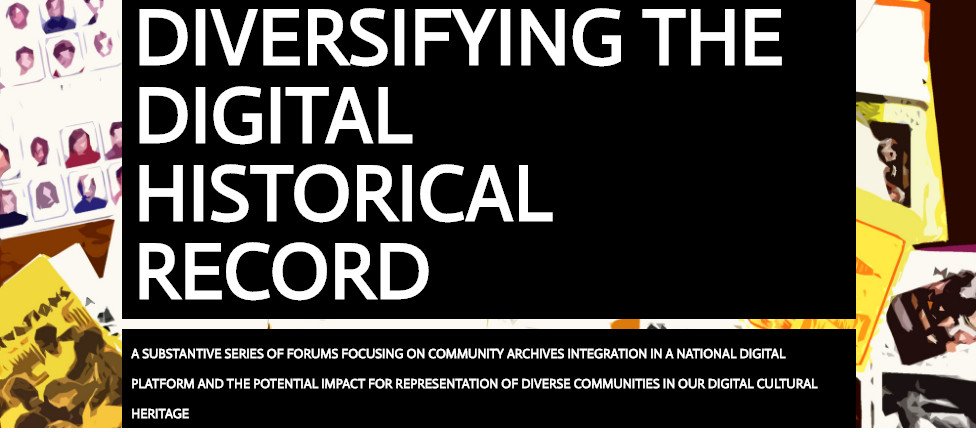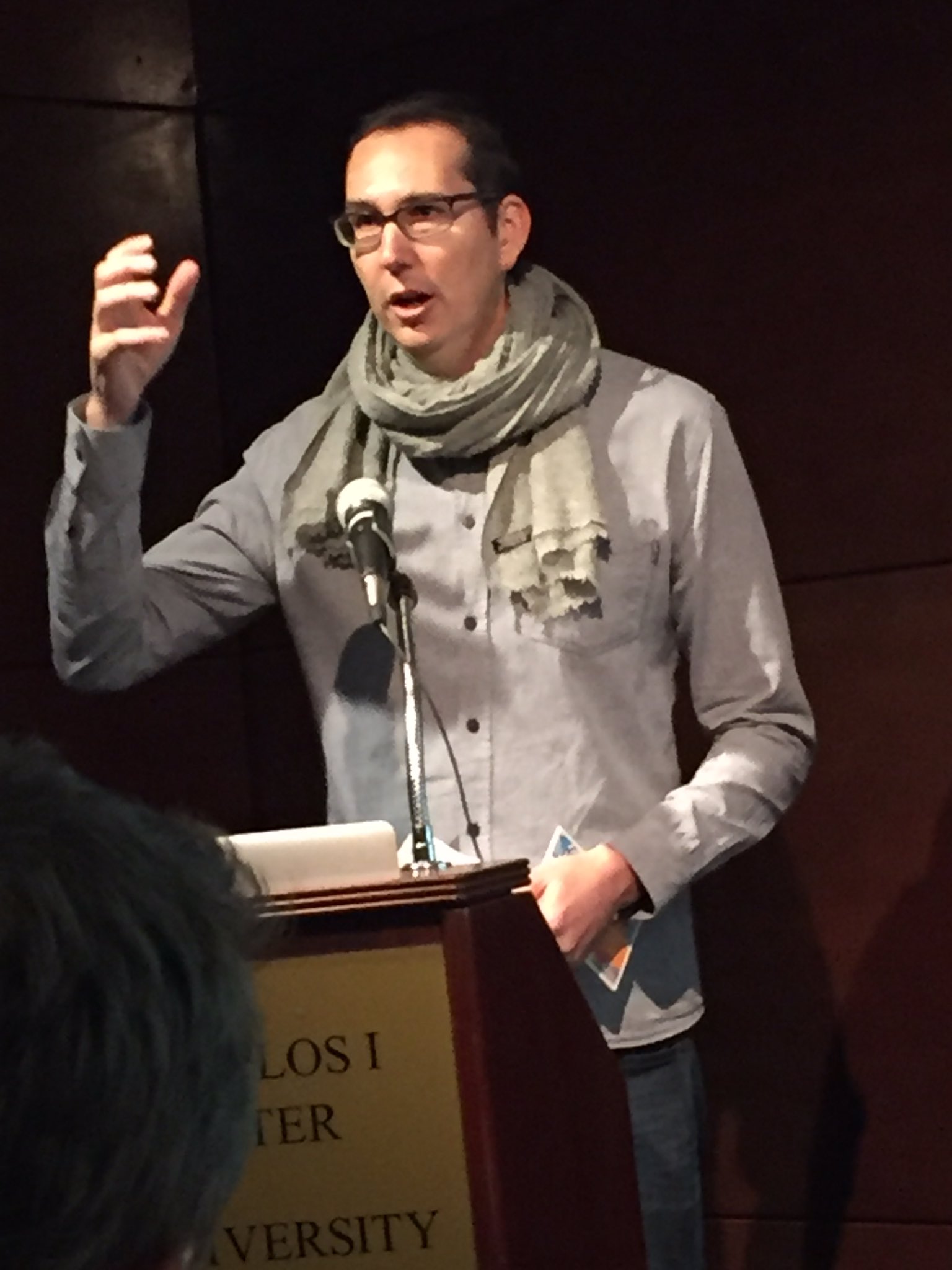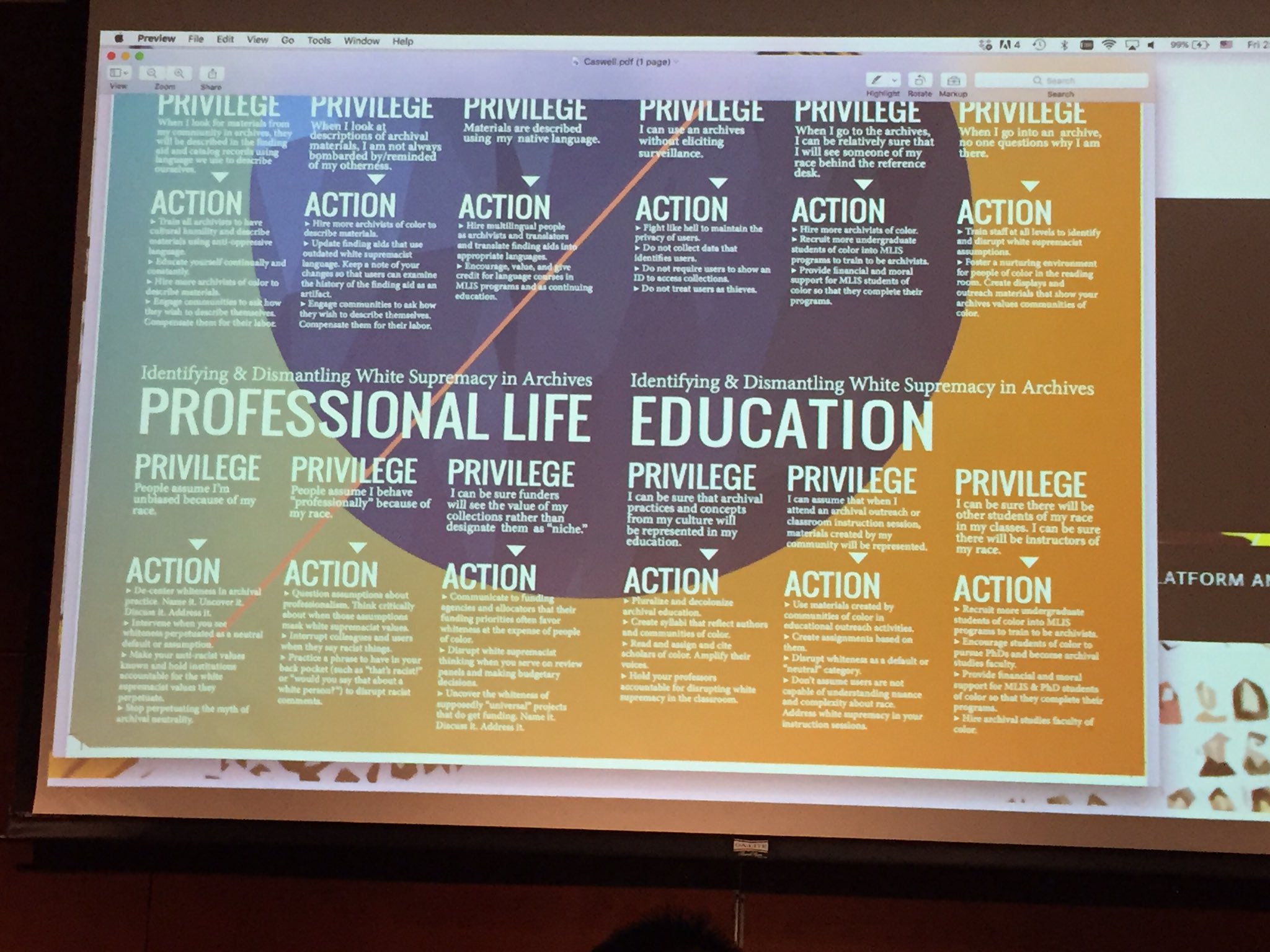On Monday, May 14th, 2018 our graduating MA students in Archives and Public History presented their final capstone projects. The capstone is a yearlong project where students put what they’ve learned in their coursework to use on a project that they design, shape, and carry out. This year’s event featured projects by Jennifer Ann Gargiulo and Danielle Nista in Archives and Tracy McFarlan and Alison Katherine Kelly Burke in Public History.
Jennifer Ann Gargiulo
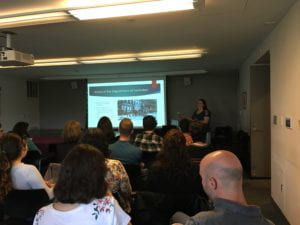
Jennifer Gargiulo presents on her work with the Department of Sanitation.
What began as an internship at the New York City Department of Sanitation‘s Bureau of Recycling blossomed into Jennifer’s capstone project when NYU Archives and Public History alumna Maggie Lee asked her to create a records retention schedule for the organization.
Not only was the project a testament to all Jennifer had learned as an archives student, it also required her to educate staff on the new protocol. Jennifer had to be able to explain to employees what records to keep and why in a manner that was clear and convincing, with enough detail to be understood, but not so much as to overwhelm. Her skill in making the information easy to understand was put to use during her presentation, as she explained to the audience how a records retention schedule benefits the department and the city (and does not include citizens’ trash and recycling!)
Tracy McFarlan
Tracy’s capstone project in public history was a collaboration with International Coalition of Sites of Conscience, a membership organization of historic sites and museums whose mission is to create connections between historical memory and contemporary issues of rights and power. Tracy’s goal was to help design a program that would counter myths about the founding of the United States, and saw the Coalition as a natural partner in carrying that out.
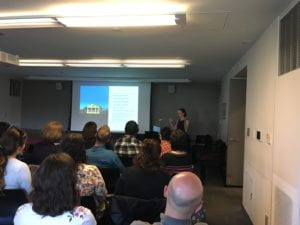
Tracy McFarlan presents her public history capstone project,
Tracy worked with several U.S. historic sites related to prominent founders or otherwise connected to the American Revolution era, surveying their needs and interests in developing new programming to help complicate their visitors’ understanding of American history. She also read historical scholarship on the period to gain a clear sense of how historians view the founding and drafted the humanities themes sections of a National Endowment for the Humanities funding proposal for the project. For Tracy and her collaborators, graphic art seemed like the perfect way to engage a wider audience in dealing with more difficult aspects of the founding of America and they designed a program that incorporated the nascent genre of graphic history. She was inspired by the work of historian Ari Kelman, who collaborated with illustrator Jonathan Fetter-Vorm on Battle Lines, a graphic history on the Civil War, particularly in the potential of graphic art to unlock an emotional response to historical content.
Danielle Nista
Danielle, a dual-degree student in library science and archives, conducted her capstone project at the New York City Municipal Archives, processing the WNYC TV moving images collection.
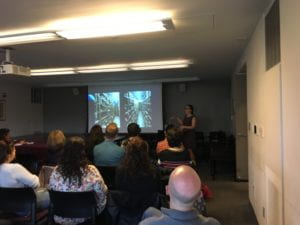
Danielle Nista presents her capstone project on the WNYC moving image collection at the Municipal Archives
Danielle began working with the largely unprocessed collection of film and tape generated by WNYC TV (New York City’s municipal television station in operation from 1949-1996) during an internship the spring semester of her first year. She continued working with the collection as a capstone project.
As she processed the collection, she was forced to confront the challenges and benefits of the “legacy description” already attached to the collection from previous attempts to process it. Her work included getting physical and intellectual control over the collection, creating metadata, and eventually, a finding aid. She was also responsible for transitioning the project to the next team who would be working with it. She explained to the crowd how much she learned about the importance of working with legacy descriptions, and paying close attention to make sure the usefulness of the project outlasts your involvement. “The past should not be a weight to drag us down,” she concluded, “but a force to push us forward.”
Alison Burke
Public history student Alison Burke, who created a podcast on the history of menstrual management products, made the evening’s final presentation. One of the inspirations for her choice of topic was the lack of scholarly attention it has received, but she soon found that this would also make the project much more difficult to research.
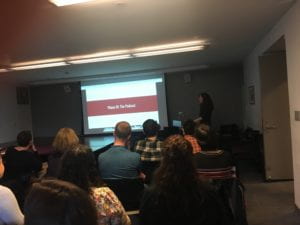
Public history student Alison Burke shares the podcast she created on menstruation during the Victorian Era.
She initially wanted to create an exhibition, but realized that she wouldn’t be able to find objects for it and turned to audio forms of presentation instead. This not only allowed her to stick with her topic, but also to experiment with narrative form. She decided to frame the podcast on the myth that ancient Egyptian women used softened papyrus tampons.
By interviewing experts, creating dramatic readings of historical documents, and adding music and sound cues for effect, Alison created an audio documentary that fulfilled her mission of using the tools of public history to tell a compelling story.
The 2018 cohort of graduates in the master’s program in Archives and Public History used a variety of methods, topics, and styles to demonstrate all that they have learned and accomplished in this program. The variety of projects and clear display of skills were a testament to the exciting contributions they are poised to make in the field. We congratulate this year’s graduates!
